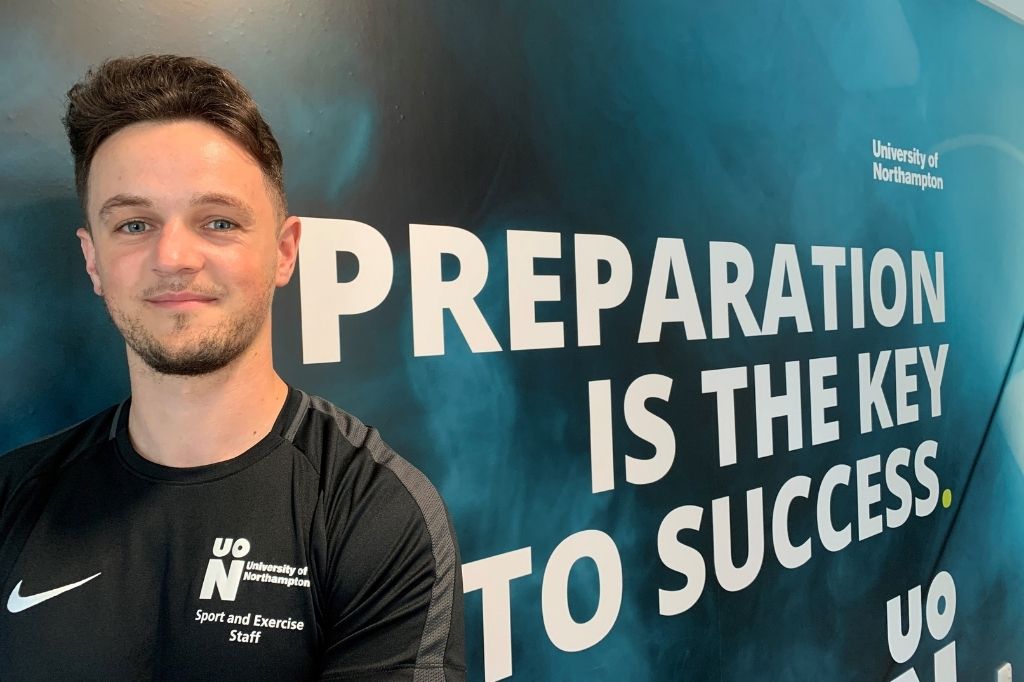Volunteers sought for study looking at ways exercise can lower blood pressure
Date 22.03.2022
22.03.2022
Adults with raised blood pressure are needed to take part in a University of Northampton study exploring the ways static exercise can help ease their condition.
Graduate Teaching Assistant in Exercise Physiology, Ben Wright, is running the trial which looks into the blood pressure-lowering benefits of isometric exercise – when muscles contract but don’t change length. An example is squeezing a ball in your hand and holding that squeeze, as the muscles of your forearm are isometrically contracting. This is opposed to isotonic contractions where the muscle lengthens and shortens, for example, a bicep curl.
The study’s aim is to develop safe and effective exercises that people can do at home without supervision, the need to travel, or expensive equipment.
Ben said: “Studies have shown that just four weeks of isometric exercise can lower blood pressure and may be just as effective as medication, and as good if not better than other types of exercise.
“There are now different methods of completing isometric exercise, common methods being using a hand grip device or bilateral leg extension, where you try to straighten both legs as you push against a specialist piece of equipment.”
He added: “An advantage of isometric exercises is that they only take a short time. They have been shown to lower systolic blood pressure by about 5-8mmHg with only 12-14 minute sessions performed three times a week, over eight weeks. With rest time, that’s just eight minutes of contractions per session. It’s more time-efficient than going for a run and you can do them seated at home, so it’s a more attractive way to reduce blood pressure, and it’s suitable for more people.”
The mechanism by which isometric exercises work isn’t completely clear, but recent studies looking at hand grip exercises have shown they may improve the function and structure of blood vessels locally, so it appears the blood vessels adapt to the repeated exercises.
Ben’s study will look at the different ways of performing the exercises and how they affect blood pressure.
It will explore whether whole-body exercises using resistance bands are more effective than hand grip exercises, what effect they have on blood vessels throughout the body when larger muscle groups are used, and if the exercises can be done effectively at home.
The study is open to adults of all ages with raised blood pressure, whether or not you are taking blood pressure medicines. Potential participants are also welcome to get in touch if they don’t know their blood pressure.
Volunteers will need to visit Northampton around five times over 10 weeks and complete three short exercise sessions a week, at home for eight weeks.
If you are interested in taking part, or for further details, email Ben.Wright@northampton.ac.uk